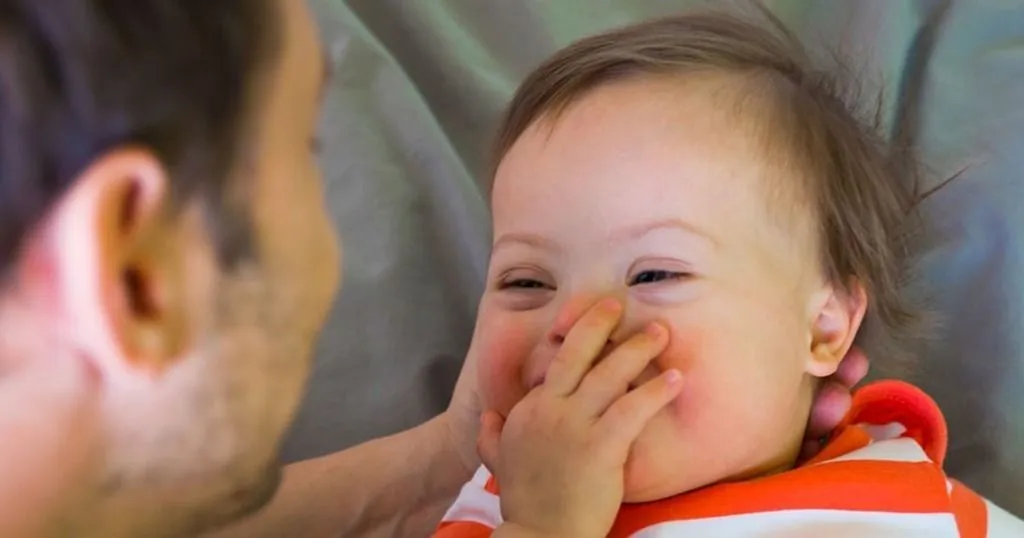Understanding cognitive delays in infants with Down syndrome
Did you know that Down syndrome is one of the most common chromosomal diseases in people? Researcher Fidler and her colleagues aim to understand more about early cognitive development in people with Down syndrome.
Posted by
Published on
Mon 28 Aug. 2023
Topics
| Attention | Child Development | Cognition | Down Syndrome | Infants | Observational Research | The Observer XT | Developmental Disorder |

Down syndrome is a genetic disorder that affects around one in every 700 babies born in the US. People with Down syndrome may experience intellectual disability and often have growth delays and distinct facial features. They are also at risk for autism, epileptic seizures, and Alzheimer’s disease.
Furthermore, people with Down syndrome experience a general delay in cognitive development. Difficulties in this area are most pronounced in attention, memory, and executive function.
Cognitive development in early childhood
In this study, Fidler and her colleagues examined cognition in infants with Down syndrome. They argue that it is important to understand delays in early development better, so that we can improve preventative care for this vulnerable group.
Specifically, they focused on the relation between cognitive functioning and early attention and memory skills. During infancy, these skills include the ability to sustain and shift visual attention and the ability to temporarily store and retrieve visual information.
Relationship between biomedical factors and cognitive development delay
Another aim of the study was to examine whether biomedical factors play a role in the observed cognitive delays. For example, many infants with Down syndrome are born with heart defects, are born prematurely, or experience significant illness.
These factors are known to impact cognition in the general population, but have not been examined in a population of infants with Down syndrome before.
You may also like these blog posts on developmental psychology:
- How to study developmental psychology: methods, designs & tools
- How maternal responses support child language development in adversity
- How to deal with noncompliant toddlers
- Research examples of developmental psychology
Cognitive development of infants with Down syndrome
Fidler and her team included 38 infants with Down syndrome in their study. Cognitive functioning was assessed using the Bayley Scales of Infant and Toddler Development. While the mean chronological age was nine months, the mean cognitive age was six months.
Of these participants, 13 infants were born prematurely, 11 were diagnosed with a congenital heart defect, and five had had a significant illness.
Sustained attention and attention shifting
Infant attention and memory behaviors were observed in three different tests and coded using The Observer XT.
The first test measured sustained attention, or focusing on a stimulus without interruption or distraction. To assess this skill, infants were presented with a red teether, and observed on total time spent looking at the teether.
The second test involved attention shifting. Infant attention shifting is observed as visual engagement with a stimulus, followed by disengaging and redirecting attention to a new stimulus.
In the experiment, this was tested by holding up a red ball to the left and a schematic face to the right, and alternately shaking them. In each trial, researchers coded the time it took infants to look at the object that was shaken, and the time between attention shifts.
Observing infant memory
In the third test, visual short-term memory was measured as time spent on exploration during a ‘changed preference’ task.
In this task, infants were presented with the same Lego in three consecutive trials. Researchers hypothesized that as the infants got used to the Lego, the time spent on visual exploration would decrease.
On the fourth trial, the experimenter presented a new Lego, different in color and size. If the infant remembered what the previous Lego looked like, it would recognize that this was a new Lego. As a result, time spent on exploration would increase again.
Attention shifting and Down syndrome cognitive development
Results showed a clear association between attention shifting and cognitive development. Infants with lower cognitive performances were slower to shift attention, even when controlling for chronological age.
When examining the role of biomedical factors in these results, Fidler and her colleagues found that premature birth was also associated with attention shifting.
Early interventions for cognitive development delay
The research team emphasized that they found a great deal of variability in their data, and that they didn’t use a comparison group. They also recommended doing longitudinal studies to examine whether early attention shifting predicts further developmental outcomes.
Still, as one of the first studies examining these factors in early cognitive development in Down syndrome, their study provides valuable insights that can be used in targeted treatments.
Specifically, knowledge like this can be used in early interventions, where cognitive development can be stimulated during periods of infant neuroplasticity.
References
- Fidler, D.; Schworer, E.; Will, E.; Patel, L.; Daunhauer, L. (2019). Correlates of early cognition in infants with Down syndrome. Journal of Intellectual Disability Research, 63(3), 205-214.
- https://www.cdc.gov/ncbddd/birthdefects/downsyndrome/data.html
- https://en.wikipedia.org/wiki/Down_syndrome
Related Posts

Learn about people's behavior by observing them
Video tracking of children with autism


